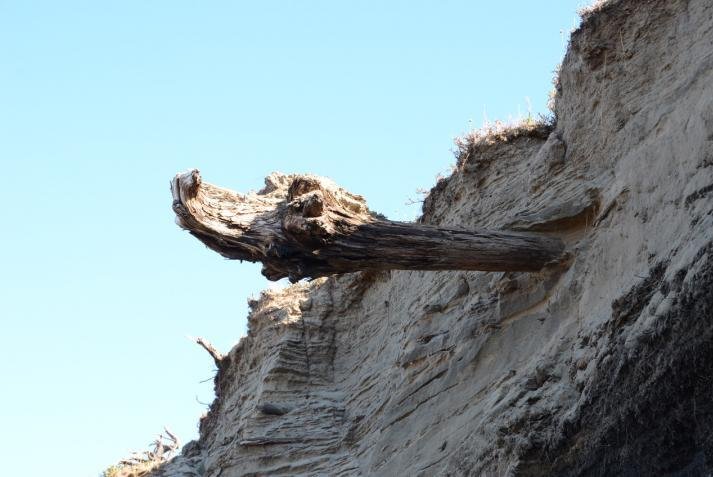Researchers analyzed tree rings from both ancient and modern trees to produce a timeline of summertime temperature fluctuations stretching back 2,000 years. Photo by University of Cambridge
Sept. 28 (UPI) -- Volcanoes have played a greater role in the natural temperature variability of than scientists previously estimated, according to a new survey of tree rings.
Scientists analyzed thousands of tree rings, from both living and dead specimens across North America and Eurasia. The tree data helped scientists compile a detailed record of summer temperatures fluctuations dating back to the year 1 AD.
When researchers compared the temperature timeline with records of very large volcanic eruptions, they found volcanic activity had an outsized impact on temperature shifts.
Importantly, researchers spread their tree data evenly across the 2,000-year timeline. Previous surveys have been biased by an overrepresentation of data from modern tree samples.
Scientists said their findings -- published this month in the journal Dendrochronologia -- doesn't lessen the significance of human-caused climate change.
Instead, researchers suggest their findings can help climate scientists better understand the impacts of volcanic activity and other geologic phenomena on climate fluctuations.
"There is so much we can determine about past climate conditions from the information in tree rings, but we have far more information from newer trees than we do for trees which lived a thousand years or more ago," lead study author Ulf Büntgen said in a news release.
"Removing some of the data from the more recent past levels the playing field for the whole 2000-year period we're looking at, so in the end, we gain a more accurate understanding of natural versus anthropogenic climate change," said Büntgen, a professor of geography at the University of Cambridge.
Volcanic activity has a cooling effect on Earth's climate. When sulphur from eruptions reaches the stratosphere, the gas can trigger formation of sun-blocking particles, a phenomenon known as volcanic forcing. When volcanoes turn quiet for prolonged periods, the latest research suggests the planet and its atmosphere can absorb more of the sun's energy.
Previously, most climate models have assumed the impacts of volcanic eruptions are short-lived, but when researchers took a wide-angle view of the data, they found prolonged impacts.
"If you look at the cumulative effect over a whole century, this effect can be much longer," Büntgen said. "In part, we can explain warm conditions during the 3rd, 10th and 11th centuries through a comparative lack of eruptions."
Researchers found summertime temperatures during the 280s, 990s and 1020s AD, when volcanic activity was limited, were comparable to modern temperatures until 2010. The data also showed greater pre-industrial summer temperature variability, as well as evidence for the Late Antique Little Ice Age in the 6th and 7th centuries.
When scientists compared their volcanic activity and temperature fluctuation timelines with historical records, they found periods featuring fewer eruptions -- and thus, less volcanic forcing -- were associated with greater societal prosperity and political stability across Europe and China.
"Interpreting history is always challenging. So many factors come into play -- politics, economics, culture," said study co-author and Cambridge volcanologist Clive Oppenheimer.
"But a big eruption that leads to widespread declines in grain production can hurt millions of people. Hunger can lead to famine, disease, conflict and migration," Oppenheimer said. "We see much evidence of this in the historical record."
Several studies have previously pinpointed the disruptive climate and societal impacts of volcanic activity, but Oppenheimer and his colleagues were surprised to find a lack of volcanic activity was associated with societal productivity.
The findings, researchers suggest, are a reminder of the outsized impacts climate change can have on human history.
"Humans have no effect on whether or not a volcano erupts, but the warming trend we are seeing right now is certainly related to human activity," said Büntgen. "While nothing about the future is certain, we would do well to learn how climate change has affected human civilisation in the past."















